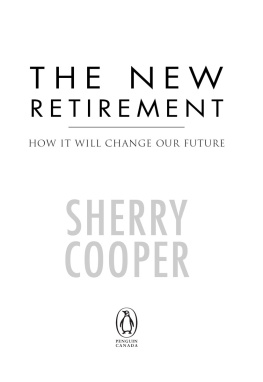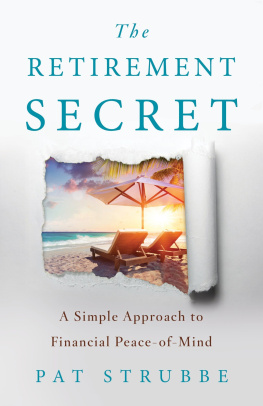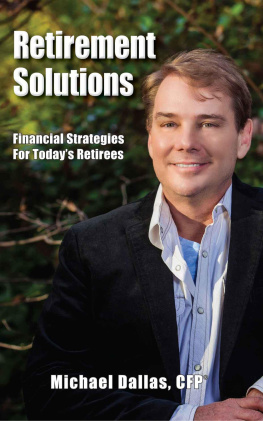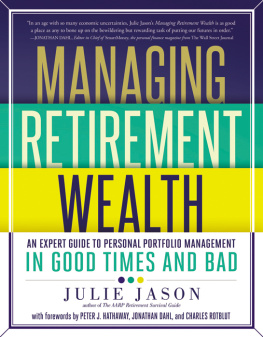
Copyright 2013 by Aaron Katsman. All rights reserved. Except as permitted under the United States Copyright Act of 1976, no part of this publication may be reproduced or distributed in any form or by any means, or stored in a database or retrieval system, without the prior written permission of the publisher.
ISBN: 978-0-07-181407-2
MHID: 0-07-181407-8
The material in this eBook also appears in the print version of this title: ISBN: 978-0-07-181406-5, MHID: 0-07-181406-X.
E-book conversion by Codemantra
Version 2.0
All trademarks are trademarks of their respective owners. Rather than put a trademark symbol after every occurrence of a trademarked name, we use names in an editorial fashion only, and to the benefit of the trademark owner, with no intention of infringement of the trademark. Where such designations appear in this book, they have been printed with initial caps.
McGraw-Hill Education books are available at special quantity discounts to use as premiums and sales promotions or for use in corporate training programs. To contact a representative, please visit the Contact Us page at www.mhprofessional.com.
This publication is designed to provide accurate and authoritative information in regard to the subject matter covered. It is sold with the understanding that neither the author nor the publisher is engaged in rendering legal, accounting, securities trading, or other professional services. If legal advice or other expert assistance is required, the services of a competent professional person should be sought.
From a Declaration of Principles Jointly Adopted by a Committee of the American Bar Association and a Committee of Publishers and Associations
TERMS OF USE
This is a copyrighted work and McGraw-Hill Education and its licensors reserve all rights in and to the work. Use of this work is subject to these terms. Except as permitted under the Copyright Act of 1976 and the right to store and retrieve one copy of the work, you may not decompile, disassemble, reverse engineer, reproduce, modify, create derivative works based upon, transmit, distribute, disseminate, sell, publish or sublicense the work or any part of it without McGraw-Hill Educations prior consent. You may use the work for your own noncommercial and personal use; any other use of the work is strictly prohibited. Your right to use the work may be terminated if you fail to comply with these terms.
THE WORK IS PROVIDED AS IS. McGRAW-HILL EDUCATION AND ITS LICENSORS MAKE NO GUARANTEES OR WARRANTIES AS TO THE ACCURACY, ADEQUACY OR COMPLETENESS OF OR RESULTS TO BE OBTAINED FROM USING THE WORK, INCLUDING ANY INFORMATION THAT CAN BE ACCESSED THROUGH THE WORK VIA HYPERLINK OR OTHERWISE, AND EXPRESSLY DISCLAIM ANY WARRANTY, EXPRESS OR IMPLIED, INCLUDING BUT NOT LIMITED TO IMPLIED WARRANTIES OF MERCHANTABILITY OR FITNESS FOR A PARTICULAR PURPOSE. McGraw-Hill Education and its licensors do not warrant or guarantee that the functions contained in the work will meet your requirements or that its operation will be uninterrupted or error free. Neither McGraw-Hill Education nor its licensors shall be liable to you or anyone else for any inaccuracy, error or omission, regardless of cause, in the work or for any damages resulting therefrom. McGraw-Hill Education has no responsibility for the content of any information accessed through the work. Under no circumstances shall McGraw-Hill Education and/or its licensors be liable for any indirect, incidental, special, punitive, consequential or similar damages that result from the use of or inability to use the work, even if any of them has been advised of the possibility of such damages. This limitation of liability shall apply to any claim or cause whatsoever whether such claim or cause arises in contract, tort or otherwise.
To my mother Tzivia, of blessed memory, who longed for me to read. I can only imagine your reaction if you had heard that I wrote a book!
Contents
Foreword
John Maynard Keynes famously quipped, When the facts change, I change my opinion. What do you do, sir? His words might well have addressed todays aging American, anxious in pursuit of a well-funded retirement and loath to acknowledge a world in which the once mighty United States no longer feels so mighty.
For those of us whose hairlines, waistlines, and bottom lines cruelly remind us that our youth is over, the memory remains of a time when, financially, the world beyond America didnt much matter. General Motors, Eastman Kodak, Xerox, Sears Roebuck, and their ilk were the Great Companies of the World.
They were, above all, American companies. The dollar was almighty. God wore red, white, and blue. And ever it would be.
In such a world, what red-blooded investor needed to look elsewhere? Indeed, in the 1960s and 1970s, long-term investment in a group of 50 large American companies, the Nifty Fifty, was considered a simple and fail-safe route to a robust retirement.
But along came the rise of Japan, the European Union, the Asian Tigers, and emerging markets, and lo! The Nifty Fifty were no longer so nifty, nor was the United States so singularly supreme. Products from companies with names like Toyota, Samsung, Novartis, and Nestl became as ubiquitous as those from Ford, IBM, Squibb, and Hershey.
Further, all talk of future economic power turned to the juggernaut that is China or to the explosion of both populations and economies in such heretofore exotic backwaters as India, Turkey, Korea, and Brazil. To seal the demise of the Old World Order, something called the Internet came along and shrank time and space.
As Dorothy said to her little dog after they emerged from their displaced shack into a Technicolor Oz of elves and witches, Toto, Ive a feeling were not in Kansas anymore.
The facts have changed, sir. An American of today faces a global reality that he can neither escape nor afford to ignore.
But whats a graying American to do? How can he adapt his financial plans to this Brave New World?
China, Korea, India, and Brazil might well be on the rise, but how can one actually risk her money in such strange lands? Arent these places rife with risk, instability, and corruption? One cant even pronounce the names of their currencies, much less invest in their economies.
Yet, if one confines his investments to the comfortable realm of our American homeland, he will surely risk suffering the pitfalls of investing in a nation that is mired in terminal decline. By so doing, he may turn our supposed golden years into years of penury and shame.
Its enough to make a grown man cry!
Fortunately, Aaron Katsman, a financial advisor who has made a career of helping his clients avoid such tears, has taken the time to write a book that will help retirees and those approaching retirement face a changed world with savvy and aplomb.
Writes Mr. Katsman: In some ways, this is the point of my book: retirees need to eliminate the emotion of home bias and look objectively at the worlds investment opportunities.
This simple but vital insight propels all that follows and sets the tone as well: folksy wisdom laced with entertaining stories, combined with a broad knowledge of world economies and their myriad financial products to paint a clear picture of how one can skillfully diversify his investments beyond the United States into what Mr. Katsman calls the GPS portfolio.
Among the significant themes in the book is the notion that a retiree should focus not on investment performance versus established benchmarks, but rather versus his own objectives and needs. The result is that one may make use of readily available global investment products to build a coherent portfolio that not only exploits the opportunities that can be found the world over, but also serves his own particular needs, be they income generation, capital preservation, capital growth, or a limiting of volatility.
Next page






